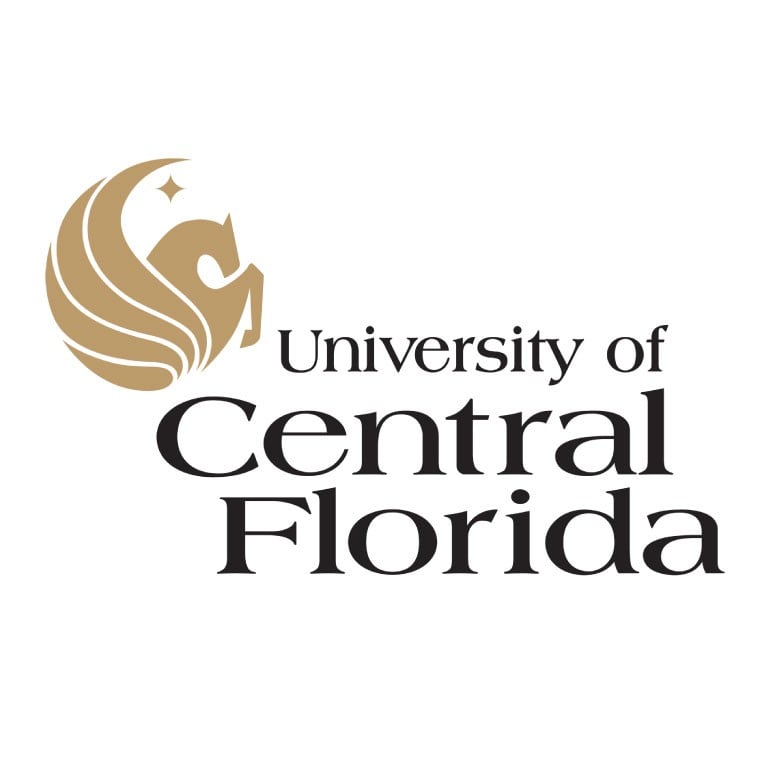Your RN license doesn’t have to be the end of the road for your nursing career. If you are more focused on the research or academic aspects of nursing and healthcare, one of the best online Ph.D.s in Nursing might be a great choice for you.
These online programs are great for catapulting young nurses into specialty research and teaching positions in their field. There are plenty of excellent nurses and medical facilities all around the world, but there are far fewer nurses with doctoral-level degrees. Such a career path is an excellent way to make yourself stand out
What are the Best Online PhDs in Nursing?
We know that you have educational goals that you’re itching to pursue, but you may not know where to start. The editors of CollegeRank utilize a unique ranking methodology based on the following three aspects:
40% Potential Salary After Graduation: Average mid-career salary of school alumni
30% Institutional Accreditation: Regional and National Accreditation for the 2019-2020 school year
30% Overall Degree Affordability: Average cost of undergraduate and graduate tuition per school
At CollegeRank, we strive to do our best to guide you and your family toward a fruitful academic career. The pursuit of knowledge is a noble one, and we want to help you reach your goals. For questions, comments, badge downloads, or data corrections, please feel free to reach out to us at editor@www.collegerank.net.
Indiana University

The Hoosier State’s flagship university dates back to 1820 and has grown into a major player in American higher education. Niche’s 2020 grades recognized Indiana University with a No. 32 among Top Public Universities in America and No. 69 among Colleges with the Best Professors in America. The Hoosiers’ athletics programs have also achieved success, bringing three national titles in men’s soccer to Bloomington in the 21st century.
Indiana University’s Ph.D. in Nursing Science allows completion of up to 99% of degree requirements through online courses. This 90-credit program includes courses on middle-range theory, biostatistics for public health, and the responsible conduct of research. Doctoral candidates also complete 16 credits of dissertation research with assistance from faculty advisors.
The cost per credit for in-state students in 2019 was $578, with a $1,553-per-credit rate for out-of-state students. Undergraduates attending Indiana University can opt for the BSN-to-Ph.D. track to streamline their nursing education. The program also offers an MSN-to-Ph.D. with a 30-credit cap on transfer credits from other institutions. Every track requires two in-person sessions on campus during doctoral work, each lasting four days.
University of Arizona

The University of Arizona, based in Tucson, Arizona, has earned a global reputation for scientific research and education. Students and faculty have drawn millions in grant funding for NASA projects through the university’s Lunar and Planetary Laboratory. The federally funded iPlant Collaborative placed the school at the forefront of the cloud-computing wave. U.S. News & World Report also highlights the College of Nursing’s successes with a No. 47 rank among Best Online Graduate Nursing Programs.
Ph.D. in Nursing courses can be completed entirely online at the University of Arizona. The only in-person requirement is the Resident Summer Intensive Experience (RISE), which is held in Tucson every August. U of A doctoral candidates complete their degrees in an average of 4.6 years, besting the 2017 national average of 5.8 years. The College of Nursing is home faculty members who specialize in health determinants, precision science, and data and systems science.
RNs can find multiple paths to a doctoral degree at the University of Arizona. The university features a BSN-to-Ph.D. path, an MSN-to-Ph.D. track, and a dual doctorate path that includes the Doctor of Nursing Practice degree. Working nurses also benefit from a part-time option that allows six credits per semester rather than a nine-credit load. Admissions requirements for all of these Ph.D. programs include the identification of prospective faculty advisors and phone calls for finalists.
Duke University

Duke University, in Durham, NC, garners national attention each year for the success of its Blue Devils men’s basketball team. The school also excels in producing graduates who take the lead in business, government, and education. Forbes ranked Duke No. 9 in Top Colleges 2019 as well as No. 16 in America’s Best Value Colleges 2019.
The Ph.D. in Nursing is a 47-credit program that develops students’ skills in areas like quantitative research design and leadership in science. Faculty members in the School of Nursing specialize in research on chronic illnesses and care. Duke encourages student and faculty research through facilities such as its Center for Nursing Discovery.
Admitted doctoral candidates receive up to five years of tuition and monthly stipends, which eases concerns about educational costs. The School of Nursing gets to know applicants through letters of recommendation, writing samples, and short personal statements. Prospective students who advance beyond the initial review are invited to on-campus interviews with expenses paid by the school.
Washington State University

Washington State University’s Pullman campus provides a picturesque setting for undergraduate and graduate programs. The green hills of the Palouse region have brought students to Washington State since 1890. U.S. News & World Report ranks the university among the nation’s best for return on investment, with a No. 106 ranking among its Best Value Schools. Programs like the Ph.D. in Nursing contribute to this ranking with the latest educational tools and experienced faculty.
Doctoral candidates complete most of their work through the university’s online platform, though the College of Nursing requires a few weeks of in-person work during a student’s first summer session. Coursework helps Ph.D. students explore topics such as psychometrics in health care research and statistical methods. Washington State University’s Program of Excellence in Addictions Research allows RNs to conduct studies alongside faculty and researchers.
Applicants to the Ph.D. program need to complete a master’s degree prior to admission. The university sets high standards for first-year students, with a minimum GPA of 3.5 required in master’s work. Potential students are expected to submit published academic work and research plans along with their applications. The school’s Nurse Faculty Loan Program provides loan forgiveness of up to $35,000 for Ph.D. students who commit to at least four years of university teaching.
West Virginia University

West Virginia University underwent a quick name change after its 1867 founding in Morgantown, West Virginia. The school started as the Agricultural College of West Virginia, but adopted its current name in 1868. Legislators recognized early that the university went beyond agricultural education to span dozens of disciplines. Niche’s 2020 grades highlighted how far West Virginia University has come with a No. 94 ranking among the Top Public Universities in America.
Doctoral candidates in the School of Nursing complete most of their courses online. The school requires Ph.D. students to attend one day of in-person courses in the fall and spring semesters, along with six days on campus prior to their first semester of study. West Virginia University promotes both part- and full-time Ph.D. options that accommodate students’ work schedules.
This Ph.D. program stands out among others on this list for its publication requirements. Each student must submit at least one article to a peer-reviewed journal before sitting for the final qualifying exam. The School of Nursing also requires acceptance of a peer-reviewed article by a journal before completion of the dissertation.
New Mexico State University

New Mexico State University provides a unique setting for students seeking a Ph.D. in nursing. The Organ Mountains on the horizon and the white-sand desert surrounding Las Cruces represent the beauty of the American Southwest. Online and traditional students alike benefit from NMSU’s exceptional programs. U.S. News & World Report supports the university’s reputation for online education with a No. 113 rank among the Best Online Graduate Nursing Programs.
The School of Nursing requires applicants to show completion of inferential statistics classes prior to admission. A master’s degree in nursing plus a current RN license from any state is also mandatory. Ph.D. applicants demonstrate their mastery of current nursing practices through writing samples, resumes, and interviews with faculty members.
Every Ph.D. student begins their coursework in the summer after acceptance into the program but the school does allow completion of courses and assignments without setting foot on campus. There is a one-week residential requirement each spring that allows connections between students and faculty. Faculty members also identify a research conference each year to be attended by all doctoral candidates.
Vanderbilt University

Cornelius Vanderbilt’s $1 million grant to Central University, in Nashville, TN, in 1873 launched a global leader in science education. Vanderbilt’s name was bestowed on the school after his death in 1877, but his investment resonates into the 21st century. Niche has highlighted the advances made by Vanderbilt University with a No. 1 ranking among Best Colleges for Education in America and a No. 4 spot among the Best Colleges for Psychology in America. The Ph.D. in Nursing Science contributes to the reputation built by Vanderbilt University since Reconstruction.
Ph.D. candidates in the School of Nursing use online courses to work through the curriculum. Vanderbilt offers a part-time path, along with clinical research and health services research tracks. Faculty help students through advanced courses in research design, knowledge synthesis, and measurement in clinical research. Every student attends a weeklong residential course each semester during their first two years of study.
The application for this Ph.D. program requires GRE scores, resumes, three letters of recommendation, and unofficial transcripts. Each prospective student must also submit up to two samples of academic research along with a statement of goals. Vanderbilt University provides all full-time candidates with $5,000 stipends for their first three years in the program. The program also offers scholarships covering 100% of tuition to promising students.
University of Kansas

The University of Kansas extends beyond its flagship Lawrence, KS campus to four additional locations and a robust online program. The KU brand is carried across the Great Plains thanks to the on-court successes of the Jayhawks men’s basketball team. U.S. News & World Report pointed to the school’s successes in online education with a No. 35 in Best Online Graduate Nursing Programs. RNs across the country can access distance learning opportunities at KU like its Ph.D. in Nursing program.
Admissions standards for this program show why a University of Kansas degree is valuable. Every Ph.D. candidate previously earned at least a 3.5 GPA as an undergraduate and a 3.25 GPA as a master’s student. The program’s GRE preferences are at least 297 out of 340 for the Verbal Reasoning and Quantitative Reasoning sections. The School of Nursing also evaluates candidates for their potential to act as leaders in the nursing profession after graduation.
Ph.D. students work with faculty advisors to adapt their studies based on research interests. The program features concentrations in education, health systems, and symptom science. Each candidate completes 52 credits of courses in topics such as health care research and grant writing. The University of Kansas requires attendance at summer residencies each semester for a student’s first three years, with each residency ending in a qualifying exam.
George Washington University

George Washington University has trained future academics, business leaders, and public figures in the nation’s capital since 1821. Prominent alumni include U.S. Senator Elizabeth Warren and journalist Bob Woodward. Despite its location and reputation, George Washington University remains a great value for college students. U.S. News & World Report placed the school at No. 86 among the Best Value Schools for 2019-2020.
The school’s 57-credit Ph.D. in Nursing leans heavily toward distance learning. Required courses like Systematic Review and Non-Experimental Research Design are designed for online learners. Every doctoral student completes an orientation in the summer prior to their first year. George Washington University also requires two weeks on campus per semester through the first two years of doctoral work.
Nursing students are not restricted to Ph.D. work to prepare for future professional demands. George Washington University offers six graduate certificates that can be completed alongside the doctoral requirements. RNs interested in advanced patient care can pursue one of four family nurse practitioner certificates. The school also features certifications in health policy and media engagement as well as nursing education.
University of Missouri

The University of Missouri staked its claim in American higher education history at its founding in 1839. Settlers from the east were able to stop in Columbia, MO to learn at the nation’s first public university west of the Mississippi River. Today, these humble roots are in the rearview mirror, thanks to the university’s growth into a regional leader. Forbes placed the school at No. 39 in the Midwest and No. 68 among Public Colleges.
The Sinclair School of Nursing touts its willingness to accept Ph.D. applicants without nursing degrees. Prospective doctoral candidates without BSN or MSN degrees should hold degrees in health care fields like public health or health education. Applicants who hold bachelor’s degrees are expected to enter with a GPA of at least 3.3 on prior work. The minimum GPA in previous courses for master’s degree holders is 3.5.
The Ph.D. in Nursing allows candidates to specialize in Symptom Science, Wellness in Underserved Populations, and Health Innovations. The only in-person requirements throughout a candidate’s enrollment are one week of orientation and a four-day intensive course each April. Online Ph.D. candidates paid tuition rates of $473.93 per credit during the 2019-2020 school year.
University of North Dakota

The University of North Dakota maintains a regional reputation for high-level academic research from its Grand Forks campus. The university’s Red River Valley Research Corridor facilitates scientific advances through organizations like the Center for Rural Health and the Upper Midwest Aerospace Consortium. Niche has recognized the breadth of the school’s academic programs with a ranking of No. 127 among Top Public Universities in America.
The Ph.D. in Nursing at the University of North Dakota is geared toward candidates interested in academic and clinical research careers. Admissions officials with the School of Graduate Studies expect Ph.D. applicants to hold a minimum 3.5 GPA in previous graduate work. The application process includes an interview for all candidates who meet the minimum requirements.
Doctoral candidates delve into the complexities of research funding, rural health care ethics, and rural health programs in online courses. Part-time students are able to complete all pre-dissertation work in three years. To complete the degree, each candidate must create and propose a grant to outside organizations for dissertation research. Advanced candidates also need to submit their research for publication in a peer-reviewed journal and present their work at conferences approved by faculty members.
University of Nevada Las Vegas

The University of Nevada, Las Vegas is a relative newcomer among the Ph.D. programs on this list. The school was founded as a satellite center for the University of Nevada in 1957. UNLV gained national prominence thanks to the Running Rebels men’s basketball team in the early 1990s. Niche’s 2020 grades show the strides made by UNLV in the classroom with a No. 118 ranking among Best Big Colleges in America.
UNLV’s Ph.D. in Nursing is available in both part- and full-time tracks. Part-time students complete their courses in four years, while full-time candidates can finish their classes in three. Ph.D. students explore subjects like knowledge development and qualitative research methods through online classes. The program’s lone face-to-face requirement is a two-day orientation, which is held prior to a student’s first semester.
UNLV’s high standards ensure that Ph.D. candidates work with the best students in the country. Successful applicants are expected to hold BSN and MSN degrees prior to admission. The School of Nursing sets a minimum GPA of 3.5 on graduate work and requires a graduate statistics course for each applicant. Funding options for doctoral candidates include the AfterCollege/AACN Nursing Scholarship Fund and the AORN Foundation Scholarship.
University of Mississippi

The University of Mississippi in Oxford, Mississippi, looms large on the Southern higher education scene. Forbes ranked the university No. 82 in The South and No. 134 among Public Colleges. The school received a No. 68 ranking among Best Big Colleges in America from Niche. The University of Mississippi Medical Center is the only academic program for advanced nursing education in the state.
RNs enjoy multiple routes to the Ph.D. in Nursing from the university. BSN holders can use the program’s post-bachelor option to complete doctoral requirements with prior graduate work. Nurses with graduate degrees in the field can also pursue standalone doctorates through online courses. Ph.D. candidates complete courses in six areas of study, including writing for funding, ethics in research, and statistics.
The application process for this program includes submitting recent GRE scores; medical Center faculty expect combined Verbal Reasoning and Quantitative Reasoning scores of 300 out of the 340-point scale. Applicants must also submit three letters of recommendation and work histories to confirm their experience. The program connects faculty with qualified applicants for interviews prior to final decisions.
University of Central Florida

The University of Central Florida in Orlando, Florida, was founded in the 1960s to help the U.S. expand its space program. This original mission expanded to additional academic disciplines when Florida Tech became the University of Central Florida in 1978. The university’s history of high-tech education is reflected in its online degree offerings.
U.S. News & World Report ranked the school No. 26 in Best Online Graduate Nursing Programs for 2019-2020. The College of Nursing features two Ph.D. tracks that can be completed almost entirely online. The BSN-to-Ph.D. track is a full-time option with three days of on-campus research required per week. This track and the standalone Ph.D. track require two face-to-face intensives each year.
The Ph.D. track is available to part-time and full-time students. Qualified nurses who hold associate degrees in the discipline plus bachelor’s degrees in other fields can take three graduate courses to participate in the program. A student’s first three years include courses such as Scientific Writing and Health Care System and Policy. Three semesters of dissertation research are part of the standard academic plan.
Indiana University-Purdue University-Indianapolis

Indiana University-Purdue University-Indianapolis (IUPUI) is a mouthful but offers great value for its students. IUPUI is part of the Indiana University system but offers Purdue University degrees in engineering and science. The university came together through a merger of the Indianapolis campuses of each system in 1969. Forbes rated IUPUI No. 213 in Public Colleges and No. 230 in Research Universities for 2019.
The Ph.D. in Nursing Science from IUPUI can be completed online on a part- or full-time schedule. Part-time students complete their work in as little as four years, while full-timers can finish in three years. The School of Nursing employs faculty members who specialize in nursing education and clinical nursing science. Doctoral candidates build foundations for their future careers with courses such as Middle-Range Theory and Biostatistics for Public Health.
IUPUI nursing students can apply for up to $2,500 per year through the School of Nursing Scholarship. The school also works with outside partners to offer postdoctoral fellowships in oncology and behavioral nursing. Doctoral students and faculty collaborate through institutes like the Research in Palliative and End-of-Life Communication and Training Center.
Illinois State University

Illinois State University set the standard as the state’s first public university at its founding in 1857, Recognition like Niche’s No. 39 rank in Best Colleges for Education in America is unsurprising, given the school’s origins as a teacher’s college. The Ph.D. in Nursing is among many programs that also put Illinois State University at No. 134 among Top Public Universities in America.
The nursing program looks for applicants who have completed MSN degrees with a minimum 3.0 GPA. GRE scores are required unless an applicant has at least a 3.4 GPA in their past 60 graduate credits. A completed application includes a statement of goals and interests, a copy of a current RN license, three references, and a resume. During application reviews, faculty and staff try to match qualified applicants with faculty who share research interests.
Accepted Ph.D. candidates are required to attend one course per week at the main campus in Normal, IL. The remaining courses can be completed without setting foot in classrooms. Illinois State University offers graduate assistantships to offset educational expenses. A graduate assistant receives a monthly stipend, 100% tuition coverage, and tuition coverage for up to 12 summer credits.
University of Iowa

Football players and fans at the University of Iowa’s home football games end each game’s first quarter by waving to patients at the Steady Family Children’s Hospital. This gesture by the community in Iowa City, Iowa, shows the university’s commitment to health care education. U.S. News & World Report ranked the school No. 65 in Best Online Graduate Nursing Programs. The publication also placed the university No. 17 in Best Nursing Schools for Doctor of Nursing Practice.
The College of Nursing takes a broad approach in its search for Ph.D. applicants. Admitted students may hold BSN, MSN, or graduate degrees in health-related fields. The college also accepts exceptional applicants with associate degrees combined with additional undergraduate or graduate degrees. Ph.D. applicants do not need to submit GRE scores or hold current RN certification, as long as they demonstrate success in academic and professional settings.
The University of Iowa uses courses like Health Policy and Biological Markers in Health Research to train future academic researchers. Doctoral candidates can complete research residencies and interdisciplinary courses during summer sessions. The College of Nursing helps candidates transition into doctoral work with tuition waivers and monthly stipends through three years of coursework.
Texas Woman’s University

Texas Woman’s University was opened in 1901 to provide domestic and technical skills to female students. All programs became co-educational in 1994, but a focus on market-ready skills remains to this day. The school’s College of Nursing was founded in 1954 and was one of the first programs in the world to offer a Ph.D. in Nursing. U.S. News & World Report ranked Texas Woman’s University No. 70 in Best Nursing Schools for Master’s Degrees.
The Ph.D. in Nursing Science takes different forms at the school’s Denton and Houston campuses. Students can complete all of their courses online through the main campus in Denton. The Houston campus balances online and in-person courses for its version of the Ph.D. Doctoral candidates can opt for full- or part-time studies to accommodate their schedules.
Nursing students must gain admission to both the Graduate School and the nursing program. The Graduate School uses a minimum 3.0 GPA in previous college courses as the baseline for all applicants. Program-specific requirements include a current RN license, a master’s degree in nursing, and graduate courses in nursing research and theory.
East Carolina University

East Carolina University’s research institutes and labs show why the school has a strong reputation for health education. The university’s Greenville, North Carolina, campus is home to facilities like the East Carolina Heart Institute and the Family Medicine Center. U.S. News & World Report has lauded the school’s online health programs, including a No. 27 rank among the Best Online Graduate Nursing Programs for 2019-2020.
The Ph.D. in Nursing evolves from mostly in-person courses in the first year to a mostly online program in the third year. Every summer course and most electives are available through the school’s online platform. The College of Nursing features a BSN-to-Ph.D. path, an MSN-to-Ph.D. track, and a DNP-to-Ph.D. option. Every track is available with part-time and full-time schedules. The BSN-to-Ph.D. track offers specializations in Nursing Education and Nursing Leadership.
Admissions requirements for the College of Nursing vary based on an applicant’s education level. First-year students who hold BSN degrees need to submit GRE scores and hold a minimum GPA of 3.3. The MSN and DNP options do not require GRE scores, but do require a minimum 3.2 GPA in graduate work. Every applicant submits standard materials like a 400-word essay on professional goals and two letters of recommendation.
University of Missouri-Kansas City

Lincoln and Lee University and the University of Kansas City were previous iterations of the University of Missouri – Kansas City. This public university houses one of two medical colleges in the state, along with nationally recognized nursing, dentistry, and pharmacy programs. U.S. News & World Report has acknowledged the university’s online degree options with a No. 19 in Best Online Graduate Nursing Programs.
The School of Nursing and Health Studies has designed online Ph.D. tracks for BSN and MSN holders. Students looking to jump from the BSN to the Ph.D. program need to complete four graduate courses. BSN and MSN applicants should demonstrate a minimum 3.2 GPA and a current RN license. The program makes GRE score submission voluntary, though it considers results as good evidence of academic potential.
First-year students bolster their research and statistics skills through reading courses. In years two and three, the Ph.D. program adds discussions of the philosophy of science and social justice. The University of Missouri – Kansas City offers a comprehensive exam course that helps doctoral students anticipate this final step before dissertation research. Doctoral candidates complete up to 12 credits in research before defending their work.
Frequently Asked Questions
A PhD can open doors in research, academia, and leadership. It’s beneficial for those passionate about advancing nursing science and making significant contributions to the field. There are fellowships available to provide financial support for students pursuing a doctoral degree in nursing.
Most PhD in Nursing programs take 4-6 years. Factors that influence how long it takes include:
• Enrollment status (full- or part-time).
• Program structure.
• Time to conduct research and write dissertation.
The best doctorate degree for a nurse depends on career goals. A Doctor of Nursing Practice (DNP) is ideal for students focused on advanced clinical practice and leadership. A PhD in Nursing suits students interested in research, academia, or policy. Both degrees offer distinct paths.
You can do many jobs with a PhD in Nursing. Some nurses pursue roles in leadership, while others work in academia. You can contribute to advancing nursing science, conduct research studies, publish scholarly articles, and teach at the university level. PhD nurses can also hold influential positions in healthcare policy, administration, or take on leadership roles within healthcare organizations.
Here are several jobs to consider:
• Chief Nursing Officer (CNO)
• Clinical Research Coordinator
• Director of Nursing Education
• Healthcare Consultant
• Health Policy Analyst
• Nursing Administrator
• Nursing Faculty
• Public Health Specialist
• Researcher
It is possible to get a PhD in Nursing without a master’s degree. Some doctoral programs accept candidates with a bachelor’s degree, particularly those with exceptional qualifications or relevant experience. This is a less common practice and depends on the program.
It depends on your career goals. A DNP is geared toward advanced clinical practice and leadership, while a PhD is for research, academia, and policy. The path you take depends on your personal and career aspirations. Both degrees contribute greatly to nursing and offer great rewards.
Yes, a PhD in Nursing requires the completion of a dissertation. The dissertation is a research project that demonstrates your ability to conduct independent and original research in the field of nursing. It is a key component of the doctoral program, showcasing your scholarly and research skills.
According to the American Association of Colleges of Nursing, less than 1% of today’s nursing workforce hold PhDs. Most nurses have degrees at the undergraduate or master’s level.
Related:
- Best Careers for the Future
- Top Ph.D.s in Healthcare Administration Online
- Best Master’s in Nurse Practitioner (RN Required)
